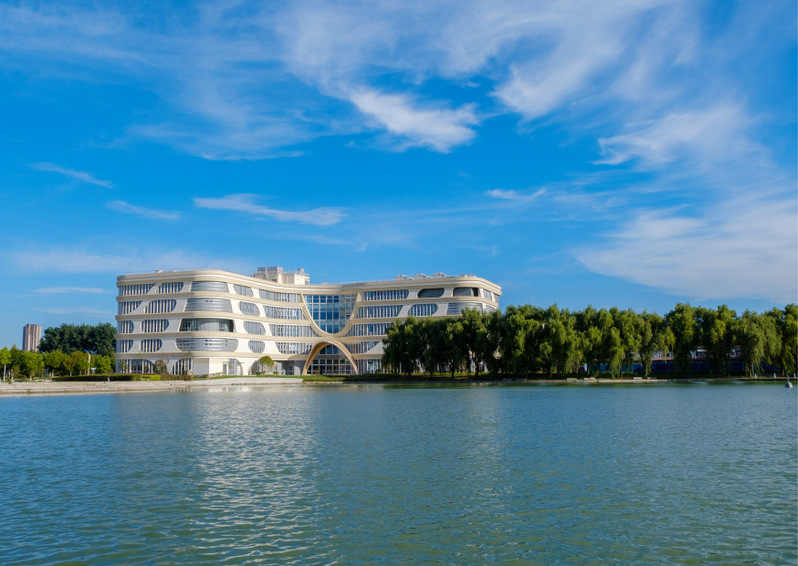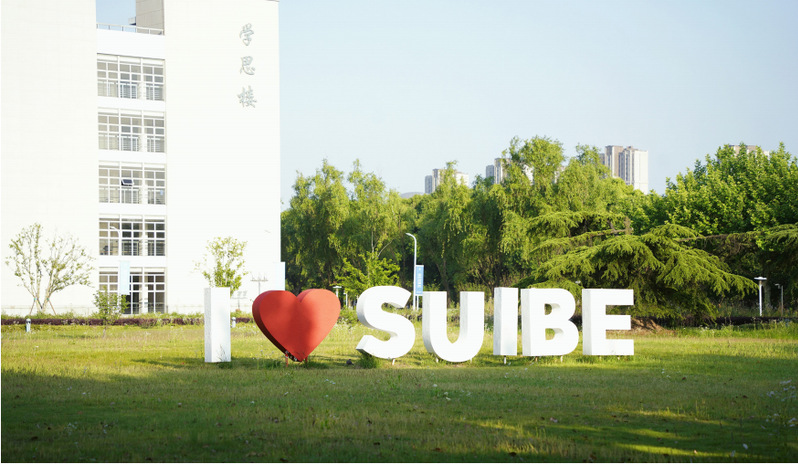- About
- News & Events
- Schools
- Research
- Campus
- Global SUIBE
Shanghai University of International Business and Economics (formerly known as Shanghai Institute of Foreign Trade) was founded in 1960 as one of the first two higher education institutes offering degree programs set up by the former Ministry of Foreign Trade. It is hailed as a “cradle for professionals in foreign trade in China”. In 1994, the university was transferred to the administration of the Shanghai Municipal People's Government; in 2009, it became the first China-based university admitted to the WTO Chairs Programme; in 2013, it adopted the current name; in 2019, it was certified as a WTO Asia-Pacific Training Center and became the only regional training partner set up in the Chinese mainland among the seven training partners of the WTO; in 2021, it was approved to grant doctorate degrees by the Academic Degree Commission of the State Council and could offer doctorate programs under the top-tier discipline of applied economics; in 2022, it was listed in the program of promoting key top-tier universities in Shanghai. SUIBE was established to develop a strong country through foreign trade, sprang up thanks to the reform and opening up policy adopted in 1978, flourished in the comprehensive reform drive of China, and is innovating with the country’s opening up in the new era since 2012. With more than 60 years of development, it has built an integrated training system covering programs for bachelors, masters, and doctors with distinctive features and advantages. It has made fruitful achievements in the cultivation of high-level, application-oriented, and internationalized economics and trade professionals, as well as decision-making consultation and research in international economy and trade. It has significantly enhanced its overall competitiveness performance.

The university always upholds the education philosophy of putting students first and taking academics as the soul. Its talent cultivation is highlighted by high admission scores, high employment quality and high salary of graduates, and their foreign language proficiency. The university has 10 national top-tier undergraduate programs, 5 Shanghai municipal top-tier undergraduate courses, 4 national top-tier undergraduate courses, 19 national undergraduate teaching quality and reform projects, a leading project of first-class undergraduate construction programs for Shanghai universities, a school listed as the leading school of course-based ideological and political education reform in Shanghai, and 2 pilot application-oriented undergraduate programs for universities under the administration of the Shanghai Municipal People’s Government. The university was selected by the Ministry of Education as one of the top 50 universities with typical experience in innovation and entrepreneurship in 2019, and was awarded Shanghai Municipal Level-A University Entrepreneurship Instruction Station from 2018 to 2021. It was also an Employment and Entrepreneurship Demonstration Base for 2020-2021 and 2022-2023. It was a national base for the inheritance of excellent traditional Chinese culture among general colleges and universities (2019) and was selected as one in the first batch of universities to be built as an innovative practice base for the cultivation of high-level international talent by the Ministry of Education (2020). The university ranked 82nd in the Chinese mainland in the QS 2019 ranking, and 10th under the financial and economic category in the 2020 Best Chinese Universities Ranking. It was in 13th place in the 2021 remuneration ranking for university graduates in China.
The university has established a discipline layout led by applied economics and characterized by an open economic discipline group and the coordinated development of economics, management, liberal arts, law, science and engineering. It is eligible to grant doctoral degrees in the top-tier academic category of applied economics, master's programs in 7 top-tier academic categories of applied economics, business administration, law, foreign language and literature, theoretical economics, statistics, and Marxist theory, and professional master programs in 13 academic categories. In addition, it has 2 peak and plateau disciplines for Shanghai-based universities (applied economics and business administration), 2 key disciplines of Shanghai and 5 key disciplines of Shanghai Municipal Education Commission. Our applied economics is ranked in the top 15% of the Best Chinese Subjects Rankings, 2 disciplines in the top-tier academic category are elected into the special plan for the cultivation of doctoral degree programs in Shanghai universities, and 6 professional master's programs are selected for the special plan for the cultivation of master's degree programs in Shanghai universities. SUIBE is home to 10 key research bases at the provincial and ministerial levels, 3 university think tanks at the municipal level, and 3 research centers for international and regional studies filed with the Ministry of Education. It has also jointly established the Global Trade Analysis and Monitoring Center with the General Administration of Customs, as well as other new-type university-based think tanks with Chinese characteristics. One think tank has been selected by the Chinese Think Tank Index into the list of top 100 university-based think tanks, while the other is serving as a Chinese member unit of the “Belt and Road Initiative” International Cooperation Think Tank Committee.

Serving national strategies and regional development, SUIBE has made contributions to drafting the Basic Law of the Hong Kong Special Administrative Region, China’s negotiation on rejoining the GATT and accession to the WTO, Pudong development & opening up and WTO reform, APEC negotiation, China-Australia and China-South Korea FTA negotiations, RCEP negotiations, China-US economic and trade negotiations, foreign aids, Central and Eastern European economic and trade cooperation, the peace process in Northeast Asia, the China International Import Expo, Shanghai Free Trade Zone, the national strategy of building Shanghai into an international center of economy, finance, trade, shipping, and S&T innovation, four major functions of global resource allocation, scientific and technological innovation, high-end industry leadership, and opening up as a hub and gateway, and the G60 Science & Technology Innovation Corridor. The research level of decision-making consultation has been at the forefront of universities in Shanghai for consecutive years.
The university has been expanding its network of foreign exchange and cooperation. As a university eligible to admit international students awarded with the Chinese government scholarship and the Shanghai municipal government scholarship, it has inked cooperation and exchange agreements with more than 100 countries, international organizations, and overseas partners to jointly carry out talent training, scientific research, and social services. SUIBE runs three Confucius Institutes and a Confucius Classroom in key regions of the “Belt and Road Initiative” countries, and the Confucius Institute it has co-established with the University of Ljubljana has been awarded the title of Global Advanced Confucius Institute. It is also in close cooperation with international organizations such as the WTO, APEC, UN Conference on Trade and Development, UNESCAP, and has been awarded as WTO Center of Excellence, offering support and services for China's participation in global economic governance.
The university has three campuses: Songjiang, Gubei, and Qibao, and has established the Songjiang Experimental School Affiliated to SUIBE in cooperation with the Government of Songjiang District. It has two programs under Shanghai’s First-class Postgraduate Education Leading Plan, three Shanghai demonstration practice bases for professional master programs, and 13 Shanghai practice bases for professional master programs. The university has more than 1,200 faculty and staff members, including over 800 full-time faculty members, over 70 “high caliber talented personnel” at national, ministerial, and provincial levels, and 16 doctoral supervisors. Over 400 faculty members have senior professional titles and more than 65% of them hold doctoral degrees. The university now has over 13,000 students, including more than 9,000 full-time undergraduates, nearly 4,000 postgraduate students, and more than 300 international students registered for degree programs.
During the 14th Five-Year Plan period (2021-2025), the university will follow the guidance of Xi Jinping Thought on Socialism with Chinese Characteristics for a New Era, adhere to the socialist direction, stick to the establishment of moral education, and fully implement the Party's education policy. It will align itself with China’s strategy to strengthen education and build the country into a major trade nation, as well as Shanghai’s plan to build itself into a modern metropolis of international prestige. Striving to build a highland of innovative talents, a highland of academic discipline innovation, a highland of renowned teachers, a highland of new think tanks, and a highland of international cooperation, SUIBE will embark on a new journey to build itself into a high-level university of finance and economics with distinctive features that is globally renowned and top-rated in China. It will provide stronger service support for Shanghai to become a central node in the domestic circulation and a strategic link between the domestic and international circulations and make a greater contribution to China’s strategy of strengthening education and international trade.
(Data updated as of May 2022)